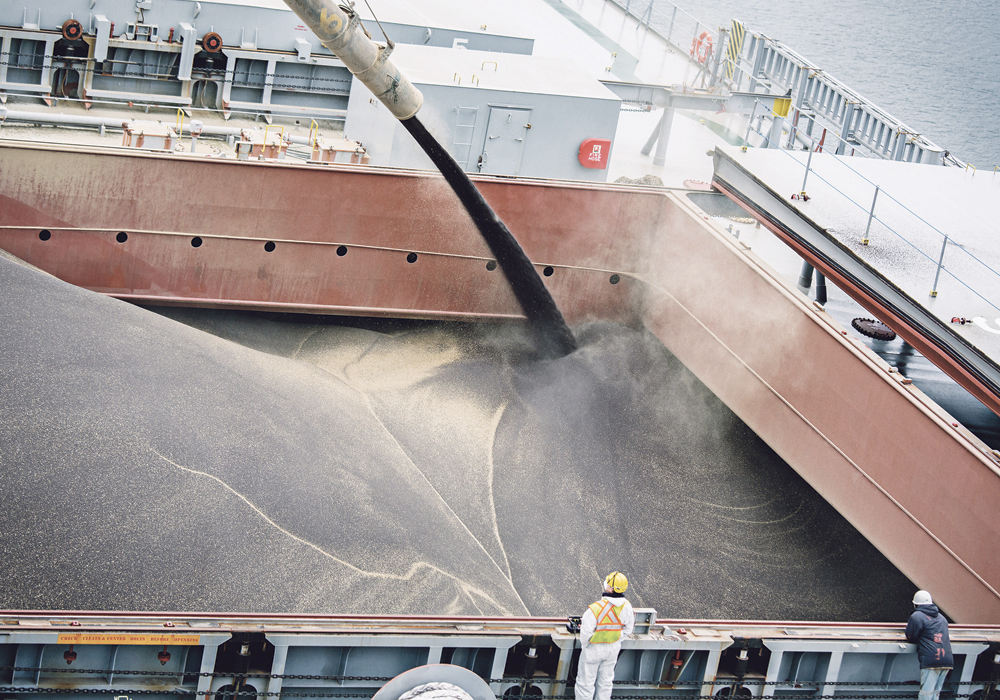It’s not often that politicians produce pithy market commentary, but Jim Carr summed up western Canadian farming reality pretty well with his observation about the risks of weather problems and market access.
“The two things have something in common: you can’t control them,” said Carr, the prime minister’s special representative for the Prairies, during the Canadian Crops Convention March 3.
The two forms of risk weren’t nearly as equally weighted five years ago. Weather was an ever-present worry. Trade problems were in small areas, or sporadic.
Read Also

Canola market finds upside as U.S.-Canada trade talks restart
Biofuels inclusion in U.S. “Big Beautiful Bill” thought to be a silver lining for Canadian canola in the first week of July.
Ten years ago, market access issues were wrinkles, glitches in an otherwise well-functioning global and continental trade system. Outright protectionism was dead as a national operating system.
Today, trade complications hang over every industry, and cast a pall on the sunny outlook for the Canadian farm economy. Without the shield of enforceable trade agreements and generally well-intended foreign governments, export agriculture looks like a dodgy proposition.
High world prices are making everybody happy today, but how will things be when the world is once again in a balanced situation for supply and demand? If foreign markets no longer desperately need our stuff, what’s to keep protectionist governments from slapping around little players like Canada?
The World Trade Organization is half kaput without a functioning set of appellant judges. Our trading partners no longer seem to default to a pro-trade stance that they override only in the most sensitive political circumstances.
These dark thoughts (from me) shouldn’t distract from the many positive signs in the world of international trade today.
United States President Joe Biden’s administration is not outright anti-free-trade, like Donald Trump’s was. Its new Trade Representative is a tough China fighter, and that’s a focus Canada needs the U.S. administration to have. “Don’t look at us. There’s your real problem.”
The Europeans are talking much about trying to revive the WTO and keeping the broad-based structure of world trade operating.
China has shown that even in the midst of disputes like its current one with Canada over the detention of Meng Wanzhou, agricultural commodities have a value and a sensitivity that often leaves them relatively free from most complications. China’s a great market for Canada today, despite the menace and denunciations from Beijing.
Canadians invested in the export business, and that’s most readers of this newspaper, should feel cheered by the (slight) lightening of the mood around world trade in recent weeks.
But farmers and other export-dependent producers need to realize that the zeitgeist is coming from a different direction these days, and that means there might be fewer good times and more challenging times ahead.
“I would be cautious about how optimistic we get,” said David McNaughton, Canada’s former ambassador to the U.S., speaking to the Canadian Crops Convention.
He was referring to hopes for Biden and crew to roll back not only Donald Trump’s anti-trade actions, but also his words and the spirits of his words and actions.
“They have in their DNA a certain amount of protectionism,” he noted.
Indeed, it’s usually the Democrats who are trade-hostile and the Republicans who are pro-open-trade. Trump, as with so many things, was an inversion and negative image of many things we have taken for granted about U.S. trade allies and foes.
McNaughton said it is great to see U.S. good intentions toward the WTO and the North American free trade deal, but it’s a long way from that official endorsement to anything muscular enough to undo the last few years of damage to trade relations around the world.
During the confirmation hearing for the new U.S. Trade Representative, which I covered, some of the focus was on Chinese bad behaviour in trade. But some of the attention fell on various perceived Canadian sins with dairy, beef cattle and lumber. Which antagonist will opportunistic politicians focus upon?
The pandemic, to top a few years of protectionist sentiments, has made countries openly self-interested, something many aren’t apologizing about.
“I think we have got to be realistic,” said McNaughton.
“This is more of a dog-eat-dog world. COVID did that.”
With any luck, the post-COVID world, which is fast-approaching in the developed world and perhaps beginning a year from now in the developing world, will see a long period of strong growth as true recovery begins the healing from the massive costs imposed by the pandemic. A few more years of good agricultural prices will see thousands of farmers rescue their depleted balance sheets.
But we probably aren’t going back to the world we knew before 2016, or even the one that existed pre-COVID. Things have changed, and we’ll have to adapt.


















